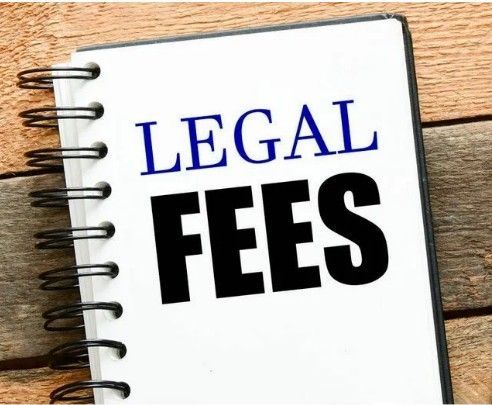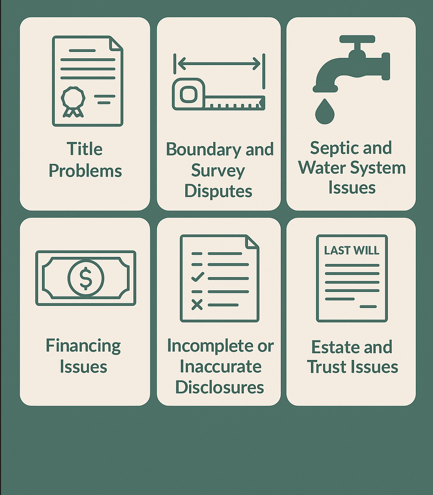Navigating Capital Gains Tax: What You Need to Know

When it comes to selling real estate, there are various financial implications to consider. One of the most significant is the federal capital gains tax. If you're in the process of selling property or just curious about what this entails, this article can shed light on the topic for you.
What is Real Estate Capital Gains Tax?
In simple terms, capital gains tax (CGT) is the tax levied on the profit made from selling a capital asset, which includes real estate. The "gain" is the difference between what you initially paid for the property (plus any major improvements) and the selling price. It's essential to understand that capital gains tax only applies to the gain, not the total amount of money you receive from the sale.
How is it Calculated?
To calculate your capital gains:
- Determine the original cost: This is the purchase price plus any associated costs (like closing costs, fees, and home improvements).
- Subtract the cost from the sale price: The difference will be your capital gain or loss.
For example, if you bought a property for $250,000, spent $20,000 on improvements, and sold it for $320,000, your capital gain would be $50,000.
When is the Tax Paid?
Typically, capital gains tax is paid when you file your annual federal income tax return. If you've made a significant gain, it might push you into a higher tax bracket for that year, so it's always a good idea to consult with a tax professional.
1099 Reporting Requirements
If you've sold real estate, in most cases, you'll receive a Form 1099-S (Proceeds from Real Estate Transactions). This form is a way for the IRS to ensure that sellers are reporting their sale and paying any taxes owed. If you do receive a Form 1099-S, you must report the sale on your income tax return, even if you're exempt from paying capital gains tax on the sale.
Exemption from Reporting Requirements
Certain sales or exchanges are exempt from the requirement to receive a Form 1099-S. For example, sales or exchanges involving the primary residence of the taxpayer, when the gross proceeds are $250,000 or less ($500,000 for married couples filing jointly), are generally exempt. However, specific criteria need to be met to qualify for this exemption.
Common Exemptions to the Tax
One of the most notable exemptions to the capital gains tax for real estate involves the sale of a primary residence. Under current law:
- Single taxpayers can exclude up to $250,000 of capital gains.
- Married couples filing jointly can exclude up to $500,000.
To qualify:
- Ownership: You must have owned the home for at least two years during the five years leading up to the sale.
- Use: The home must have been your primary residence for at least two of the past five years.
- Frequency: This exemption can't be used for more than one home sale in a two-year period.
Beyond this standard exemption, there are other special circumstances where homeowners can benefit from reduced or even full exemptions:
1. Partial Exclusion: If you don't meet the standard criteria for the full exemption (i.e., living in the home for two out of the last five years), you might still qualify for a partial exclusion if the sale is due to a "qualified" change in employment, health reasons, or other unforeseen circumstances. The amount of the exclusion is generally proportional to the amount of time you've lived there.
2. Health-Related Moves: If you moved because of health reasons, you might be eligible for an exemption. This can apply if a doctor recommends a change of residence for reasons related to a disease, illness, or health condition, either for you or a qualifying family member.
3. Work-Related Moves: If your place of employment changes and you move as a result, you might qualify for an exemption. Generally, the new job location should be at least 50 miles farther from your old home than your old job location was. This could apply whether you're an employee or self-employed.
4. Unforeseen Circumstances: The IRS provides a list of events that can be considered "unforeseen circumstances," including death, divorce or legal separation, becoming eligible for unemployment compensation, and more. If your reason for selling isn't explicitly listed, you may still qualify if you can demonstrate that the sale was due to other unexpected factors leading to financial hardship.
5. Military, Foreign Service, and Intelligence Personnel: Members of these services may opt to suspend the five-year test period for up to ten years when they are on "qualified official extended duty." This means they could potentially spend up to 15 years away from a home they've owned and still qualify for the exemption when they sell.
Depreciation Recapture:
If you claimed depreciation on a home office or if the property was a rental, you'll need to 'recapture' that depreciation. This means you'll have to pay tax on the amount of depreciation you claimed or could have claimed. This isn't an exemption, but it's important to understand, as it can affect the tax you owe when selling.
Vermont Capital Gains Tax:
Vermont, like many other states, imposes a state-level capital gains tax on the sale of assets, including real estate. This tax is in addition to the federal capital gains tax. Vermont's capital gains tax rate is based on the state's income tax rates, which are progressive and can vary depending on the taxpayer's income bracket.
In Conclusion
Navigating the federal and Vermont capital gains tax landscape when selling real estate can be complex. However, being informed and seeking the advice of professionals can make the process smoother. Whether you're planning to sell your property or need guidance on any real estate-related matters, the Peet Law Group here to assist you every step of the way.










